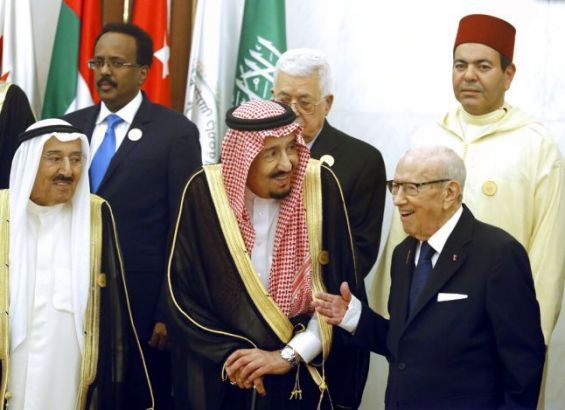Mecca hosted, Thursday, an extraordinary Arab League summit. The event was quite brief and included only a couple of interventions, a Suhur meal and the signing of the meeting's final statement.
Many participants did not have the opportunity to speak during this summit, including representatives from Morocco, Algeria, Qatar and Libya.
The Tunisian President Beji Caid Essebsi and his Mauritanian counterpart Mohamed Ould Abdel Aziz were the only leaders in the Maghreb region to deliver speeches during Mecca’s summit. Caid Essebsi was the first one to speak, Thursday, in his capacity as the former president of the organization’s last ordinary summit, held on March 31 in Tunis.
The Mauritanian President, who will be leaving office in two months, seized the opportunity to hail his country’s ties with Riyadh and Abu Dahbi.
The summit in Saudi Arabia was concluded by the signing of the final statement.
A summit that denounced Iran’s policy
The Mecca summit was mainly devoted to the Iranian crisis and its Shiite allies in Yemen. Arab leaders condemned «Iran-backed Houthi terrorist militia actions» and the alleged «sabotage of four oil tankers off the coast of the United Arab Emirates and a drone attack on a key Saudi oil pipeline earlier this month», AP reports.
In this final statement, Arab leaders backed «the right of Saudi Arabia and the U.A.E. to defend their interests in the face of the attacks».
«Iran should respect the sovereignty of Arab states and stop interfering in the affairs of countries, which is threatening security and stability in the region», the leaders said in the same statement, read by Arab League Secretary-General Ahmed Aboul Gheit.
Iraq was the only attendee that refused to sign the summit’s final statement, rejecting its content. Moreover, Iraqi President said, during the meeting, that «Iran is a Muslim country and neighbor», adding : «We do not hope for its security to be targeted since we are sharing 1,400 kilometers (870 miles) of border and a number of relations».
It is worth mentioning that King Mohammed VI was not the only Arab leader that did not attend the summit. In fact, the Algerian interim president, the head of Libya’s National Accord government, the Emir of Qatar, the Lebanese President and the Sultan of Oman did not make it to the Arab League summit.




 chargement...
chargement...












